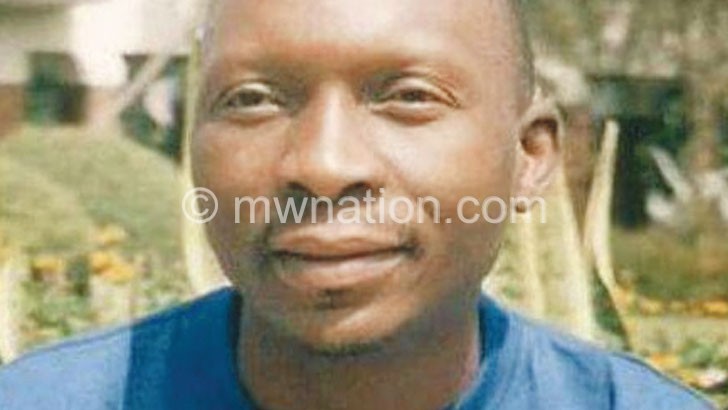‘Presidential debates less likely to shift voter preferences’
Three presidential candidates—Lazarus Chakwera of the Malawi Congress Party (MCP), Saulos Klaus Chilima from UTM and Atupele Muluzi from United Democratic Front (UDF)—participated in the second Presidential Debates at Bingu International Convention Centre (BICC) in Lilongwe. Our reporter AYAMI MKWANDA engages Chancellor College based political analyst Ernest Thindwa on the highs and lows of such debates and finds out whether debates can help swing votes?

Q1: What were the highs and lows of the debates?
A1: The debate was generally good if you place the event into context. Presidential debates are a new phenomenon in Malawi and evidently there are areas requiring attention. Candidates paid disproportionate attention to aspirations (end product) when elected without convincingly articulating how they would deliver the end product. More importantly, hardly was there any difference on a number of key policy areas apart from Fisp where MCP proposed universal subsidies suggesting once again ours will largely remain a choiceless democracy from a policy proposition perspective.
Q2: Can presidential debates influence swing voters in Malawi?
A2: I am not aware of any scientific study on the extent to which debates can alter voter choices among electoral alternatives in Malawi. Even in mature democracies only floating voters tend to be swayed by electoral debates.
Yet I can accurrately speculate presidential debates are less likely to shift voter preferences in significant ways in our case essentially because there are fundamental factors that shape voter electoral preferences in our context. These include the ethnic/regional identify of the candidate and the party they represent which often are not inseparable in our context. This does not suggest the collective political behavour of Malawians is primordial and that these structural factors such as ethnic/regional identities cannot be suppressed to deny them an expression in collective political behaciour. Late Bingu’s first term and his subsequent landslide victory in 2009 informed us that observable performance of the incumbent administration coupled with broad based perception of inclusivity can diffuse ethnic/regional voting patterns.
Voters are rational and tend to get voting cues not from the claimed but actual performance and behaviour of the incumbent administration. I am afraid to say the DPP administration has not succeeded in addressing perception of exclusionary character and that is likely to fuel voting along ethnic/regional faultines making presidential debates or party manifestos less potent reference points for determibing choices among electoral alternatives.
Q3: What do you say to the comments that some debaters were attacking others?
A3: We should not lose sight of the fact that presidential candidates are political entrenpreneurs seeking to maximise profits [votes] in the political market place. Unlike in the economic market where it is not good business practice to directly and publicly make reference to products or services offered by other enterprises, it is expected that competitors in the political market will persuasively promote own ideas and policy offerings while aggressively discrediting those of competitors. While character assassination is not acceptable in the political market, a simultaneous assault on competitor’s ideas and policy proposition and promotion of own offerings is the primary essence of electoral debates.
Q4: So would you say the debaters successfully critiqued their opponents’ policies?
A4: This is an area where the first 2019 presidential debate was hugely lacking. Perhaps understandably so largely because there are no major differences between policy propositions by contenders. As such instead of focusing on the relative superiority of own ideas and policy propositions in addressing the country’s socio-economic ills, debaters predictably were appealing for sympathy by attempting to disproportionately sell anticipated or perceived actual performance record.
Unless we have clear cut differences in policy proposition (unlikely given all candidates are primarily targetting the larger poor rural constituency), promoting one’s own offerings while discrediting competitor propisition will remain an elusive ingredient in our electoral debates, reason criticisms of competitors were limited to personalities and perceived performance record.
Q5: What should they do next time?
A5: Candidates need to demonstrate they are up to the task. Their claims and propositions need to be anchored on facts. They need to demonstrate they are acutely aware of the current state of affairs by presenting where we are now, the magnitude of the challenges and present proposed solutions. For instance, they need to indicate current student/teacher ratio and enrolment at all levels of our education, doctor/citizen ratio, unemployment levels, national tarmarc road kilometre, internet peneteation, electricity capacity and level of electrification, mortality rate, trade deficit, GDP per capita, corruption index just to mention a few and provide targets for each sector for the next five years supported by a clear roadmap defined by measurable milestones. While articulating the vision is important, of even greater significance is a presentation of policy proposition and a plan of action to achieve the targets and deliver the vision. It is the vision, policy proposition and a clear and measurable roadmap that should be sold to the electorate.
Q6: What is your take on DPP’s no show at the debate?
A6: I hold the view that by snubbing the presidential debates, DPP has not neccessarily lost an edge in terms of its electability. I can hardly imagine the existence of a significant proportion of floating voters in Malawi likely to shift party loyalty owing to electoral debates. But I can speculate
[and I guess rightly so]that DPP has suffered psychological damage to the extent that the party’s public image has come under heavy public scrutiny.
It is utter lack of respect to the voting Malawians who, as rightful employers of any president, wanted to subject all job seekers for the position of presidency, to public scrutiny of some kind. As such while DPP’s loss can momentarily be described as largely symbolic, continued absence of the party from future electoral debates as they gain significance in Malawian politics may culminate into substantive losses in electoral terms. n





